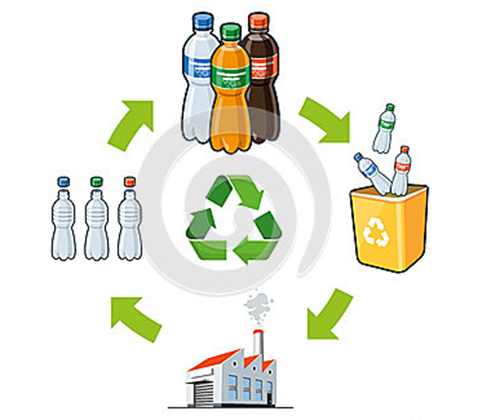The EU Plans to Mandate the Use of Post-consumer Recycled Plastic in Plastic Packaging! PCR Has Unlimited Potential in the International Market
As previously rumored, the most important part of this revision of the regulations is to require manufacturers to use a minimum amount of recycled plastic in new packaging put on the market to reduce the impact of packaging on the environment.
"The cycle of packaging helps to decouple economic development from the use of natural resources." "Packaging has grown faster than gross national income in recent years, leading to soaring carbon dioxide and other emissions, as well as the overexploitation of natural resources, biodiversity loss and pollution," the commission said in the draft.
— 1 —
Energy Crisis, Environmental Pressure
In 2019, only 5% of the plastic in packaging came from recycled materials, according to the European Plastics Industry Organization. Recyclers face challenges selling recycled materials in a market dominated by cheaper, higher-quality virgin materials. Under the dual factors of energy crisis and environmental protection considerations, the European Union will accelerate the implementation of the "plastic restriction order" in 2022. On the one hand, it will ban disposable plastic products on a large scale, and on the other hand, it will promote the growth of the plastic recycling industry within the EU in the form of directives.
A senior EIA expert at an international multilateral institution said that the measure also stems from the current environmental pressure facing the EU. After China announced in 2017 to ban the entry of foreign garbage and promote the reform of solid waste import management system, other countries in the world have followed up. However, the European and American countries that originally exported these wastes have imperfect domestic plastic recycling industrial chain.The EU is also trying to boost its own recycling industry and address real problems. At the same time, given the current price of natural gas, the plastics industry is also energy-intensive and needs to be scaled back, he said.
Foreign media said that the EU's forthcoming measures will cover everything from stickers on electronic products, disposable plastic bags and capsules of coffee, which will have a huge impact on Europe's chemical and food packaging industries.
By making recycled plastic mandatory on plastic packaging, it is hoped to increase recycling rates and push companies to design products that fit into the recycling process because it is in their interests to do so, according to EuRIC, the recycling industry association.
— 2 —
Good for the Recycled Plastics Industry
According to the European Parliament and the Council of the European Union published in 2019 (EU 2019/904), by 2025, the proportion of recycled plastic in some PET containers in member States will be more than 25%. By 2030, some beverage bottles will contain at least 30 percent recycled plastic.
In the proposed amendment to the Packaging and Packaging Waste Regulation, the above directive will be amended, and the minimum recycling content in plastic packaging will be amended as follows:
1. Starting from January 1, 2030, plastic parts in packaging shall contain a minimum percentage of recycled content recovered from post-consumer waste plastic in the unit packaging:
Types | The lowest content in 2030 |
(a)Contact-sensitive packaging based on PET | 30% |
(b)Touch-sensitive packaging made of plastic materials other than PET, except single-use plastic beverage bottles | 10% |
(c)Disposable plastic beverage bottle | 30% |
In addition to the packaging mentioned in (a), (b) and (c) | 35% |
2. From 1 January 2040, plastic components in packaging shall contain the following minimum percentages of recycled content recovered from post-consumer plastic waste, per unit of packaging:
Types | The lowest content in 2040 |
(a)For contact-sensitive plastic packaging, except single-use plastic beverage bottles | 50% |
(b)Disposable plastic beverage bottle | 65% |
Except for plastic packaging mentioned in (a) and (b) | 65% |
It should be noted that, by 31 December 2026, the European Commission has the power to adopt the Implementing Act establishing the method for calculating and verifying the percentage of recycled components recovered from post-consumer waste plastics per unit of plastic packaging and the format of the technical document referred to in Annex VII. By 1 January 2028, the Commission should assess the need to reduce the minimum percentage of specific plastic packaging set out in paragraphs 1 (b) and (d).
— 3 —
China's First Evaluation Standard for Traceability of Post-consumer Recycled Plastics
The European Union has proposed legislation to mandate the content of recycled plastics in packaging. At the same time, almost all famous international brands have also signed the commitment to use post-consumer recycled plastics. The international market potential of post-consumer recycled plastics is unlimited!
Due to the relatively backward development of recycling system, our country, as the largest production and supply area of recycled plastics, has not distinguished "recycled plastics after consumption (PCR)" and "recycled plastics after industry (PIR)", and has not required retroactive identification of the authenticity and compliance of recycled plastics after consumption and their most front-end raw materials, which has become a barrier to entering the international market.


【Contact Us】
Tel:
+86 21 64067720
Email: info@leveragelimited.com










